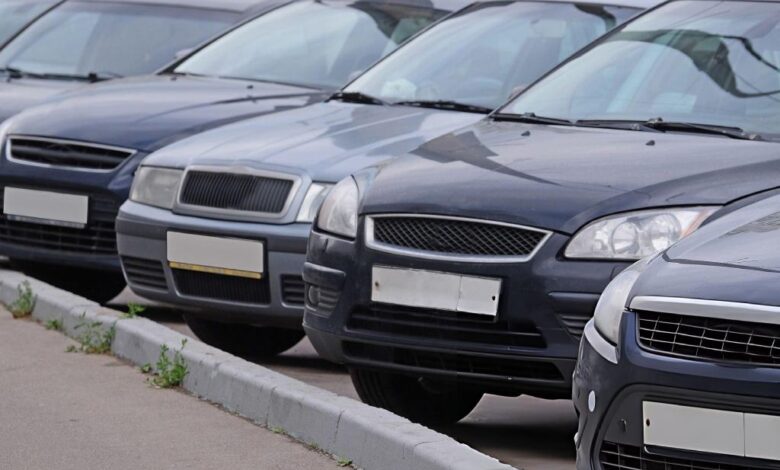How to Evaluate a Used Car Before Making a Purchase

Buying a used car sounds simple.
You see a good ad. You go for a test drive. You make the payment.
But hold on!
It is the fastest way people in Abu Dhabi end up with surprise repairs, hidden accident history, and profound regret.
If you want to buy a used car in Abu Dhabi without getting scammed or overpaying, you need to know what to check, how to check, and what to avoid.
Let’s start your journey the right way.
The Story Begins: The Buyer Who Rushed
Imagine a friend of yours!
Let’s call him Omar.
He finds a beautiful SUV online. Shiny. Clean. Great price.
He takes a short test drive and buys it the same day.
Sounds impressive, right?
Not at all.
Two weeks later, Omar was stuck on the highway with an overheated engine.
Turns out the car had a hidden accident history and a bad radiator.
If Omar had followed the steps in this guide, he could’ve saved thousands of dirhams.
So let’s make sure you never repeat his mistake.
Step 1: Start With Your Purpose
Before checking any car, pause for a moment.
Ask yourself:
What exactly do I need this car for?
Is it:
- Daily office commute?
- Family trips to Dubai?
- Long highway drives to Al Ain?
- Occasional errands?
Why does this matter?
Because each purpose requires a different type of vehicle.
If you’re buying for city driving, a small sedan is perfect.
If you love long desert trips, a strong SUV is better.
Choosing the wrong type means extra fuel costs, more maintenance, and unnecessary headaches.
This is the very first step smart buyers do before they buy a used car in Abu Dhabi.
Step 2: Begin With the Exterior
Here is where many people get fooled.
A car can look flawless in pictures, but photos never tell the whole truth.
When you see the car in person, walk around it slowly.
Look for:
- Uneven paint.
- Misaligned doors or bumpers.
- Scratches or dents.
- Gaps between body panels.
- Rust around edges.
These are signs of previous repairs or accidents.
Now you might think, “But the seller told me it was never damaged.”
Bucket brigade moment:
- Don’t rely on words.
- Rely on your eyes.
If the paint shade on the door looks slightly different from the rest of the body, something was fixed.
And you deserve to know why.
Step 3: Check the Tires
Tires are like footprints. They reveal more than you think.
Look closely at the tire wear. If one side is more worn out, the car may have:
- Suspension issues.
- Alignment problems.
- Chassis imbalance.
These repairs can be expensive.
Also, check the tire manufacturing year.
Tires older than 5 years must be replaced before registration in Abu Dhabi.
Another cost to keep in mind before you buy a used car in Abu Dhabi.
Step 4: Pop the Hood
Most beginners feel nervous checking an engine. But don’t worry.
You do not need to be a mechanic.
Here are simple things anyone can evaluate:
Engine Cleanliness
A very clean engine can be suspicious.
Sometimes, sellers wash the engine to hide leaks.
Oil Level and Color
Pull out the dipstick. The oil should be golden or light brown.
If it’s black or thick, the owner did not maintain the car properly.
Coolant Condition
The coolant should be green, orange, or pink, not rusty or muddy.
Bad coolant means poor maintenance.
Belts and Hoses
If they look cracked or worn, they need to be replaced immediately.
Remember one thing for sure!!
If the engine scares you, the car will scare your wallet later.
Step 5: Sit Inside
People judge cars by the exterior. But the interior reveals how the owner treated it.
Check:
- Seat condition.
- Steering wear.
- Dashboard cracks.
- Buttons and switches.
- AC performance.
- Window controls.
- Smells.
If the car smells like mold, it may have water damage. If the AC feels weak, repairing it in Abu Dhabi’s heat will be expensive. If the buttons feel sticky, it may indicate long-term neglect.
You deserve better.
Step 6: The Test Drive
No test drive means no deal.
When you want to buy a used car in Abu Dhabi, this is the moment when you know if the vehicle is truly worth it.
During the test drive, observe:
Acceleration
Smooth or delayed?
A delay may mean transmission issues.
Brakes
Do they respond well?
Any vibration?
Any grinding sound?
Steering
Does the car pull to one side?
That means alignment or structural problems.
Engine Sound
It should be smooth, not knocking or rattling.
Suspension
Drive over a speed bump slowly.
Do you hear noise?
If yes, suspension work is needed.
Let the car speak to you.
It always tells the truth.
Step 7: Ask for Service History and Receipts
This is your goldmine.
Service history shows how well the previous owner maintained the car.
Things to ask for:
- Regular oil changes.
- Major repairs.
- Part replacements.
- Warranty claims.
- Dealer stamps.
Cars with a full service history at official agencies like Toyota, Nissan, Honda, or BMW are always safer.
Cars without history?
Proceed with caution.
Step 8: Get the Vehicle History Report
This is the UAE’s biggest advantage. You can request a complete accident and mileage report from:
- RTA.
- Emirates Vehicle Gate (EVG).
- TAMM.
These reports show:
- Total number of accidents.
- Mileage records.
- Insurance claims.
- Previous owners.
- Blacklisted issues.
Never rely on “trust me, bro.”
Rely on the official report.
Step 9: Bring a Mechanic for Final Inspection
Even experienced buyers bring a mechanic.
Why?
Because professionals notice things you cannot see.
Mechanics can identify:
- Minor leaks.
- Engine misfires.
- Transmission wear.
- Electrical issues.
- Hidden frame repairs.
This small expense can save you thousands.
If the seller refuses a mechanic inspection, walk away.
Good cars have nothing to hide.
Step 10: Evaluate the Price
Before negotiating, research the market.
Check prices on our official automarket website.
Compare similar models, years, conditions, and mileage.
- If a deal seems too good to be true, it usually has a problem.
- If a car is overpriced, use your research to negotiate.
Knowledge is your biggest weapon before you buy a used car in Abu Dhabi.
Evaluate Smartly and Buy Confidently
Buying a used car is not about luck. It is about method, patience, and clarity.
By following the steps above, you avoid scams, save money, and secure a car that stays reliable for years.
Your journey to buy a used car in Abu Dhabi should be safe, smart, and stress-free.
Let this guide be your trusted roadmap.
Frequently Asked Questions
1. What is the most important step when evaluating a used car in Abu Dhabi?
The test drive and a full mechanical inspection are the most important steps for spotting hidden issues.
2. Can I check accident history of a used car in Abu Dhabi?
Yes. You can check it through RTA, TAMM or Emirates Vehicle Gate reports.
3. Should I buy a used car without service history?
It is risky. Always prefer cars with documented maintenance records.
4. Is a pre-purchase inspection necessary?
Yes. A PPI helps you avoid cars with engine, transmission or electrical problems.
5. What documents are needed after I decide to buy the car?
You need Emirates ID, insurance, vehicle testing report and registration transfer documents.



